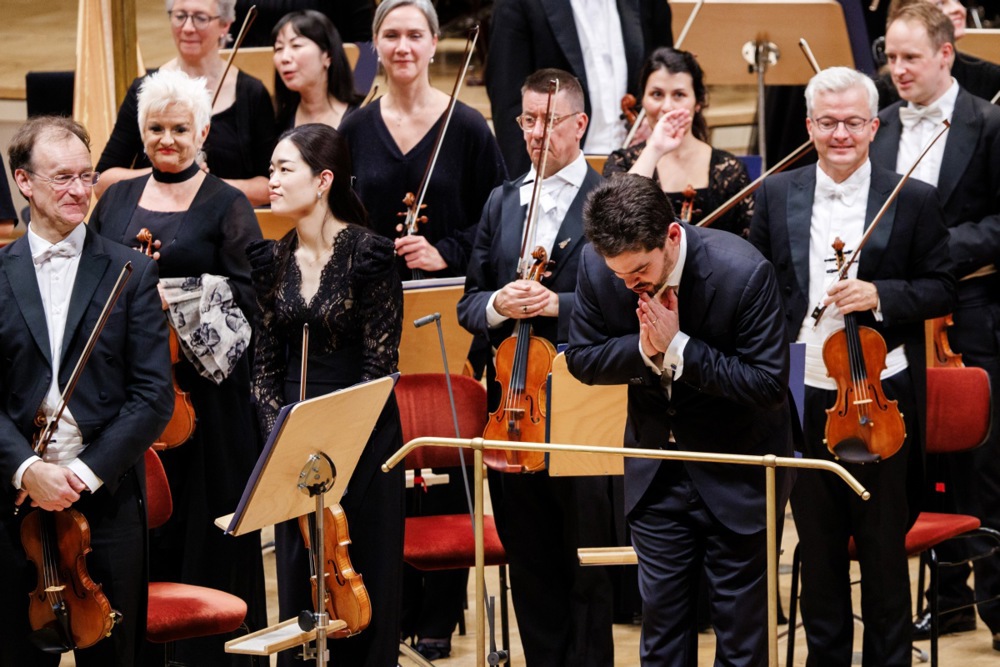The European Broadcasting Union (EBU) has unveiled a series of reforms to the voting and promotional rules for the Eurovision Song Contest, a move widely seen as a response to the storm of controversy surrounding Israel’s strong performance earlier this year.
The changes, announced today ahead of the next edition in Vienna in mid-May, 2026, aim to safeguard the contest’s “neutrality and integrity” amid accusations of undue influence in the public televote.
Israel’s entrant, Yuval Raphael, topped the public vote with her song New Day Will Rise at the 2025 contest in Basel, securing maximum points from 34 out of 38 national juries and international voters.
This propelled her to second place overall, behind Austria’s JJ, but sparked immediate backlash from several broadcasters.
Delegations from Spain, Ireland, Belgium and Finland raised alarms over the transparency of the televote. They pointed to discrepancies such as Spain’s public award of 12 points to Israel – despite its jury giving zero – and a tenfold spike in voting volume compared to the semi-final.
New Day Will Rise was in the televote lead despite ranking outside Spotify’s top five streamed entries post-contest.
At the heart of the furore were revelations that an Israeli Government agency had funded extensive online advertising campaigns, including ads on social media and YouTube, to rally votes for Raphael.
Prime Minister Benjamin Netanyahu took to Instagram to urge his 1.5 million followers to support the entry, just minutes before her grand final performance.
While such third-party promotions were permissible under existing rules, critics argued in this case they skewed the contest’s spirit of fair play, particularly given the geopolitical sensitivities surrounding Israel’s involvement in the Gaza conflict.
Eurovision director Martin Green acknowledged the “feedback from members and our fans” in a statement today, emphasising that the 2025 results were “valid and robust” following independent verification.
“We’ve listened and we’ve acted,” Green said, adding that the reforms would “provide stronger safeguards” to ensure “every vote counts and every voice is heard”.
The EBU’s Reference Group, which oversees the contest’s strategic direction, has approved a comprehensive package of measures.
This includes capping public votes per device at 10 — down from 20 — to limit potential “vote farming” by co-ordinated campaigns.
The updated Code of Ethics now explicitly discourages “disproportionate promotion” by third parties, such as governments or agencies. Broadcasters and artists are also prohibited from endorsing or participating in such efforts, although “reasonable” self-promotion remains permitted.
Additionally, voting patterns will be subject to enhanced monitoring, with stricter penalties for irregularities, further strengthening the contest’s existing multi-layered verification process.
In a public letter, Green stressed that the contest “must always remain a place where music takes centre stage”, urging members to “resist attempts to turn our stage into a place of geopolitical division”.
The reforms come against a backdrop of boycott threats that have overshadowed the event since Israel’s 2024 entry, Eden Golan, faced protests in Malmö.
Broadcasters in Ireland (RTÉ), the Netherlands (AVROTROS and NPO), Slovenia and Spain (RTVE) have vowed to withdraw from the 2026 contest if Israel participates, with Iceland and Belgium voicing similar reservations.
RTVE, in particular, demanded a recount of the 2025 votes earlier this year, a request firmly rebuffed by the EBU.





